Photo: Ken Sax
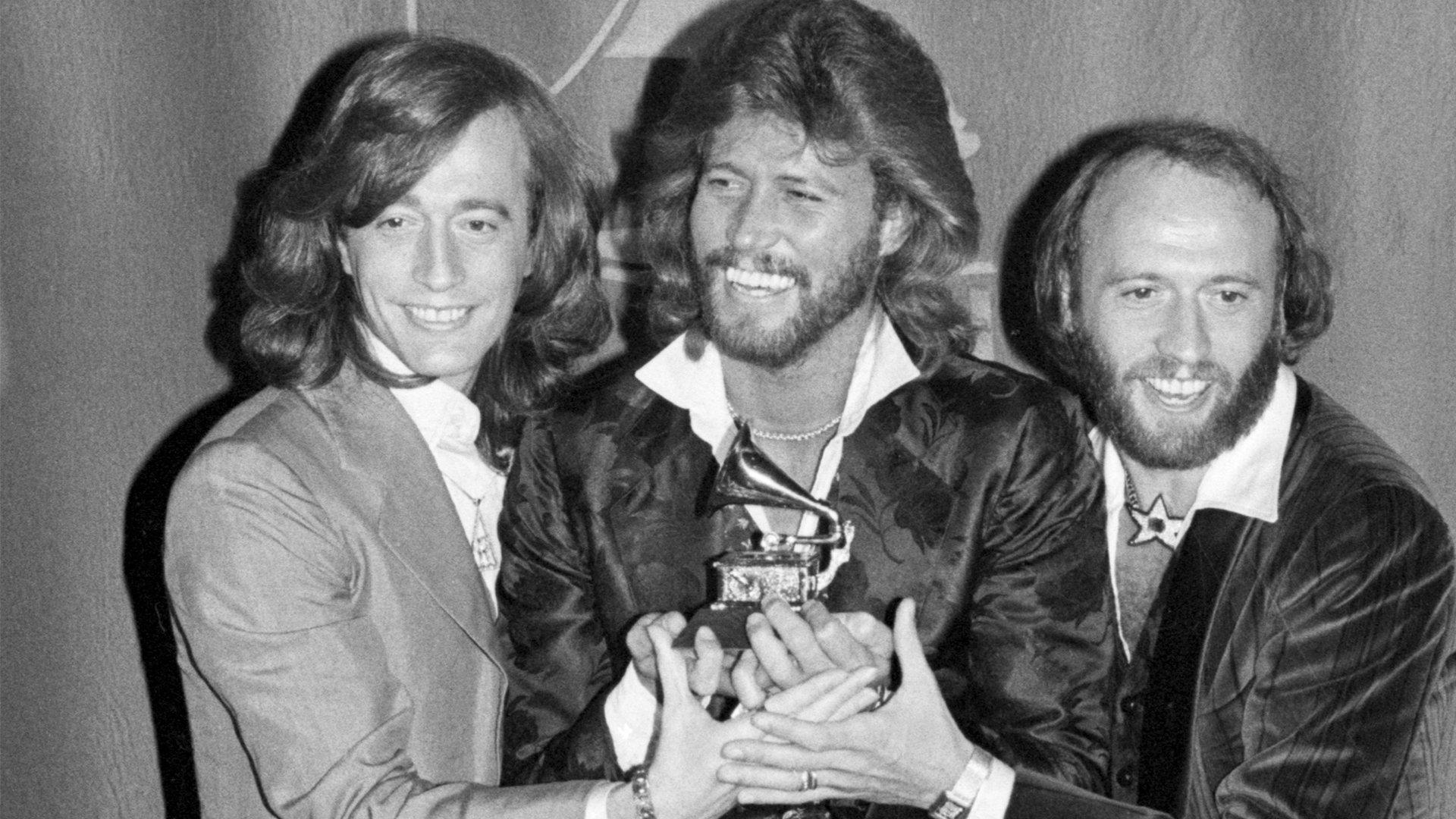
Aerosmith
news
GRAMMY Rewind: Watch Aerosmith Confidently Win Best Rock Performance For "Janie's Got A Gun" In 1991
Watch Aerosmith win Best Rock Performance By A Duo Or Group With Vocal for their classic song, "Janie's Got a Gun," at the 33rd GRAMMY Awards in 1991 in the latest installment of GRAMMY Rewind
Thirty years on, "Janie's Got a Gun" remains one of Aerosmith's most infectious, swaggering tunes.
So, it's fitting that when they won a GRAMMY for the now-classic song, they maintained that energy, strutting to the stage when the B-52s and Cyndi Lauper announced their victory.
In the latest installment of GRAMMY Rewind, watch the Bad Boys from Boston win Best Rock Performance By A Duo Or Group With Vocal for "Janie's Got a Gun" at the 33rd GRAMMY Awards in 1991.
Check out the throwback clip above and click here to enjoy more episodes of GRAMMY Rewind.
"Dream On": 7 Facts About Aerosmith's Classic Song | GRAMMY Hall Of Fame
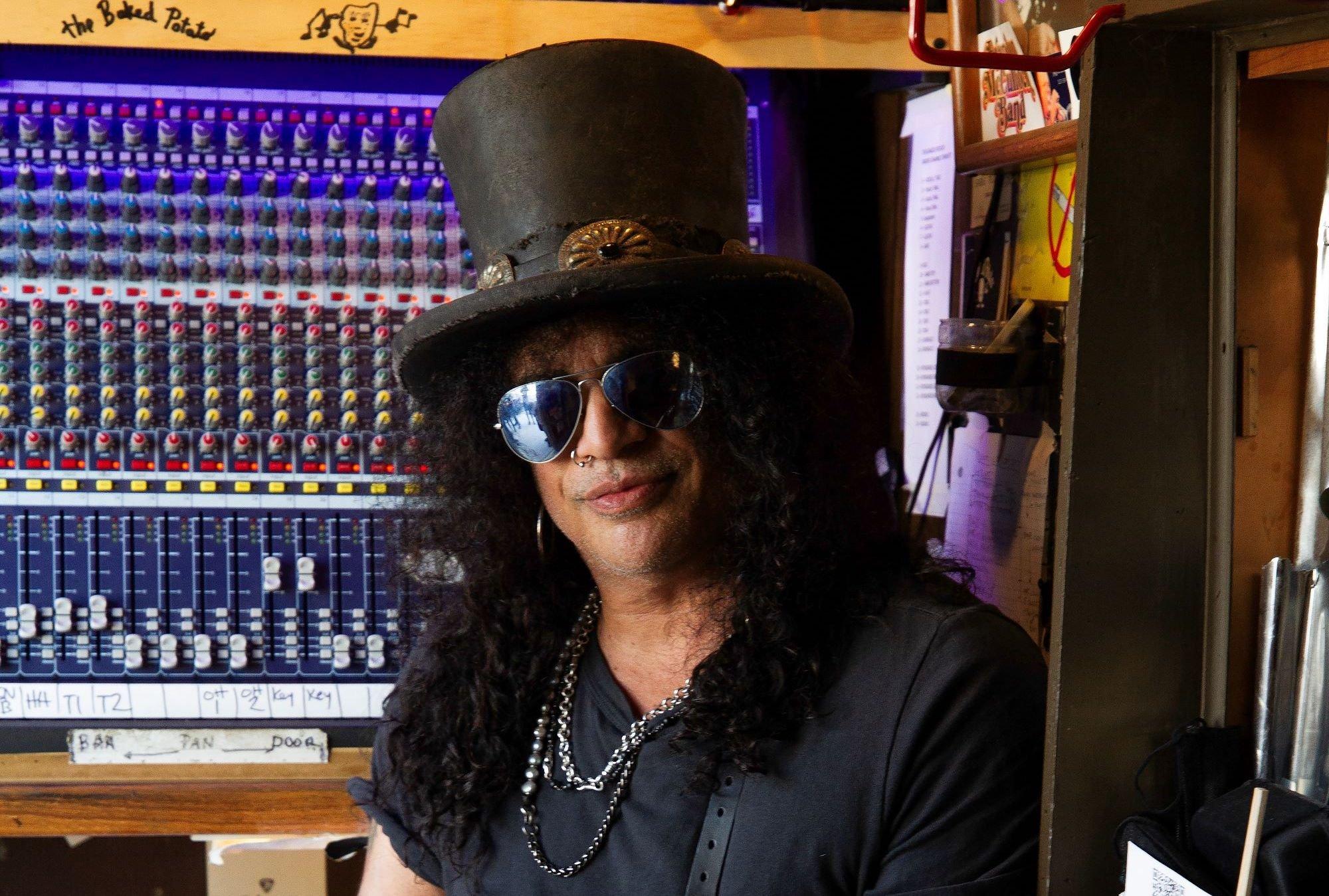
interview
Slash's New Blues Ball: How His Collaborations Album 'Orgy Of The Damned' Came Together
On his new album, 'Orgy Of The Damned,' Slash recruits several friends — from Aerosmith's Steven Tyler to Demi Lovato — to jam on blues classics. The rock legend details how the project was "an accumulation of stuff I've learned over the years."
In the pantheon of rock guitar gods, Slash ranks high on the list of legends. Many fans have passionately discussed his work — but if you ask him how he views his evolution over the last four decades, he doesn't offer a detailed analysis.
"As a person, I live very much in the moment, not too far in the past and not very far in the future either," Slash asserts. "So it's hard for me to really look at everything I'm doing in the bigger scheme of things."
While his latest endeavor — his new studio album, Orgy Of The Damned — may seem different to many who know him as the shredding guitarist in Guns N' Roses, Slash's Snakepit, Velvet Revolver, and his four albums with Myles Kennedy and the Conspirators, it's a prime example of his living-in-the-moment ethos. And, perhaps most importantly to Slash, it goes back to what has always been at the heart of his playing: the blues.
Orgy Of The Damned strips back much of the heavier side of his playing for a 12-track homage to the songs and artists that have long inspired him. And he recruited several of his rock cohorts — the likes of AC/DC's Brian Johnson, Aerosmith's Steven Tyler, Gary Clark Jr., Iggy Pop, Beth Hart, and Dorothy, among others — to jam on vintage blues tunes with him, from "Hoochie Coochie Man" to "Born Under A Bad Sign."
But don't be skeptical of his current venture — there's plenty of fire in these interpretations; they just have a different energy than his harder rocking material. The album also includes one new Slash original, the majestic instrumental "Metal Chestnut," a nice showcase for his tastefully melodic and expressive playing.
The initial seed for the project was planted with the guitarist's late '90s group Slash's Blues Ball, which jammed on genre classics. Those live, spontaneous collaborations appealed to him, so when he had a small open window to get something done recently, he jumped at the chance to finally make a full-on blues album.
Released May 17, Orgy Of The Damned serves as an authentic bridge from his musical roots to his many hard rock endeavors. It also sees a full-circle moment: two Blues Ball bandmates, bassist Johnny Griparic and keyboardist Teddy Andreadis, helped lay down the basic tracks. Further seizing on his blues exploration, Slash will be headlining his own touring blues festival called S.E.R.P.E.N.T. in July and August, with support acts including the Warren Haynes Band, Keb' Mo', ZZ Ward, and Eric Gales.
Part of what has kept Slash's career so intriguing is the diversity he embraces. While many heavy rockers stay in their lane, Slash has always traveled down other roads. And though most of his Orgy Of The Damned guests are more in his world, he's collaborated with the likes of Michael Jackson, Carole King and Ray Charles — further proof that he's one of rock's genre-bending greats.
Below, Slash discusses some of the most memorable collabs from Orgy Of The Damned, as well as from his wide-spanning career.
I was just listening to "Living For The City," which is my favorite track on the album.
Wow, that's awesome. That was the track that I knew was going to be the most left of center for the average person, but that was my favorite song when [Stevie Wonder's 1973 album] Innervisions came out when I was, like, 9 years old. I loved that song. This record's origins go back to a blues band that I put together back in the '90s.
Slash's Blues Ball.
Right. We used to play "Superstition," that Stevie Wonder song. I did not want to record that [for Orgy Of The Damned], but I still wanted to do a Stevie Wonder song. So it gave me the opportunity to do "Living For The City," which is probably the most complicated of all the songs to learn. I thought we did a pretty good job, and Tash [Neal] sang it great. I'm glad you dig it because you're probably the first person that's actually singled that song out.
With the Blues Ball, you performed Hoyt Axton's "The Pusher" and Robert Johnson's "Crossroads," and they surface here. Isn't it amazing it took this long to record a collection like this?
[Blues Ball] was a fun thrown-together thing that we did when I [was in, I] guess you call it, a transitional period. I'd left Guns N' Roses [in 1996], and it was right before I put together a second incarnation of Snakepit.
I'd been doing a lot of jamming with a lot of blues guys. I'd known Teddy [Andreadis] for a while and been jamming with him at The Baked Potato for years prior to this. So during this period, I got together with Ted and Johnny [Griparic], and we started with this Blues Ball thing. We started touring around the country with it, and then even made it to Europe. It was just fun.
Then Snakepit happened, and then Velvet Revolver. These were more or less serious bands that I was involved in. Blues Ball was really just for the fun of it, so it didn't really take precedence. But all these years later, I was on tour with Guns N' Roses, and we had a three-week break or whatever it was. I thought, I want to make that f—ing record now.
It had been stewing in the back of my mind subconsciously. So I called Teddy and Johnny, and I said, Hey, let's go in the studio and just put together a set and go and record it. We got an old set list from 1998, picked some songs from an app, picked some other songs that I've always wanted to do that I haven't gotten a chance to do.
Then I had the idea of getting Tash Neal involved, because this guy is just an amazing singer/guitar player that I had worked with in a blues thing a couple years prior to that. So we had the nucleus of this band.
Then I thought, Let's bring in a bunch of guest singers to do this. I don't want to try to do a traditional blues record, because I think that's going to just sound corny. So I definitely wanted this to be more eclectic than that, and more of, like, Slash's take on these certain songs, as opposed to it being, like, "blues." It was very off-the-cuff and very loose.
It's refreshing to hear Brian Johnson singing in his lower register on "Killing Floor" like he did in the '70s with Geordie, before he got into AC/DC. Were you expecting him to sound like that?
You know, I didn't know what he was gonna sing it like. He was so enthusiastic about doing a Howlin' Wolf cover.
I think he was one of the first calls that I made, and it was really encouraging the way that he reacted to the idea of the song. So I went to a studio in Florida. We'd already recorded all the music, and he just fell into it in that register.
I think he was more or less trying to keep it in the same feel and in the same sort of tone as the original, which was great. I always say this — because it happened for like two seconds, he sang a bit in the upper register — but it definitely sounded like AC/DC doing a cover of Howlin' Wolf. We're not AC/DC, but he felt more comfortable doing it in the register that Howlin' Wolf did. I just thought it sounded really great.
You chose to have Demi Lovato sing "Papa Was A Rolling Stone." Why did you pick her?
We used to do "Papa Was A Rolling Stone" back in Snakepit, actually, and Johnny played bass. We had this guy named Rod Jackson, who was the singer, and he was incredible. He did a great f—ing interpretation of the Temptations singing it.
When it came to doing it for this record, I wanted to have something different, and the idea of having a young girl's voice telling the story of talking to her mom to find out about her infamous late father, just made sense to me. And Demi was the first person that I thought of. She's got such a great, soulful voice, but it's also got a certain kind of youth to it.
When I told her about it, she reacted like Brian did: "Wow, I would love to do that." There's some deeper meaning about the song to her and her personal life or her experience. We went to the studio, and she just belted it out. It was a lot of fun to do it with her, with that kind of zeal.
You collaborate with Chris Stapleton on Fleetwood Mac's "Oh Well" by Peter Green. I'm assuming the original version of that song inspired "Double Talkin' Jive" by GN'R?
It did not, but now that you mention it, because of the classical interlude thing at the end... Is that what you're talking about? I never thought about it.
I mean the overall vibe of the song.
"Oh Well" was a song that I didn't hear until I was about 12 years old. It was on KMET, a local radio station in LA. I didn't even know there was a Fleetwood Mac before Stevie Nicks and Lindsey Buckingham. I always loved that song, and I think it probably had a big influence on me without me even really realizing it. So no, it didn't have a direct influence on "Double Talkin' Jive," but I get it now that you bring it up.
Was there something new that you learned in making this album? Were your collaborators surprised by their own performances?
I think Gary Clark is just this really f—ing wonderful guitar player. When I got "Crossroads," the idea originally was "Crossroads Blues," which is the original Robert Johnson version. And I called Gary and said, "Would you want to play with me on this thing?"
He and I only just met, so I didn't know what his response was going to be. But apparently, he was a big Guns N' Roses fan — I get the idea, anyway. We changed it to the Cream version just because I needed to have something that was a little bit more upbeat. So when we got together and played, we solo-ed it off each other.
When I listen back to it, his playing is just so f—ing smooth, natural, and tasty. There was a lot of that going on throughout the making of the whole record — acclimating to the song and to the feel of it, just in the moment.
I think that's all an accumulation of stuff that I've learned over the years. The record probably would be way different if I did it 20 years ago, so I don't know what that evolution is. But it does exist. The growth thing — God help us if you don't have it.
You've collaborated with a lot of people over the years — Michael Jackson, Carole King, Lemmy, B.B. King, Fergie. Were there any particular moments that were daunting or really challenging? And was there any collaboration that produced something you didn't expect?
All those are a great example of the growth thing, because that's how you really grow as a musician. Learning how to adapt to playing with other people, and playing with people who are better than you — that really helps you blossom as a player.
Playing with Carole King [in 1993] was a really educational experience because she taught me a lot about something that I thought that I did naturally, but she helped me to fine tune it, which was soloing within the context of the song. [It was] really just a couple of words that she said to me during this take that stuck with me. I can't remember exactly what they were, but it was something having to do with making room for the vocal. It was really in passing, but it was important knowledge.
The session that really was the hardest one that I ever did was [when] I was working with Ray Charles before he passed away. I played on his "God Bless America [Again]" record [on 2002's Ray Charles Sings for America], just doing my thing. It was no big deal. But he asked me to play some standards for the biopic on him [2004's Ray], and he thought that I could just sit in with his band playing all these Ray Charles standards.
That was something that they gave me the chord charts for, and it was over my head. It was all these chord changes. I wasn't familiar with the music, and most of it was either a jazz or bebop kind of a thing, and it wasn't my natural feel.
I remember taking the chord charts home, those kinds you get in a f—ing songbook. They're all kinds of versions of chords that wouldn't be the version that you would play.
That was one of those really tough sessions that I really learned when I got in over my head with something. But a lot of the other ones I fall into more naturally because I have a feel for it.
That's how those marriages happen in the first place — you have this common interest of a song, so you just feel comfortable doing it because it's in your wheelhouse, even though it's a different kind of music than what everybody's familiar with you doing. You find that you can play and be yourself in a lot of different styles. Some are a little bit challenging, but it's fun.
Are there any people you'd like to collaborate with? Or any styles of music you'd like to explore?
When you say styles, I don't really have a wish list for that. Things just happen. I was just working with this composer, Bear McCreary. We did a song on this epic record that's basically a soundtrack for this whole graphic novel thing, and the compositions are very intense. He's very particular about feel, and about the way each one of these parts has to be played, and so on. That was a little bit challenging. We're going to go do it live at some point coming up.
There's people that I would love to play with, but it's really not like that. It's just whatever opportunities present themselves. It's not like there's a lot of forethought as to who you get to play with, or seeking people out. Except for when you're doing a record where you have people come in and sing on your record, and you have to call them up and beg and plead — "Will you come and do this?"
But I always say Stevie Wonder. I think everybody would like to play with Stevie Wonder at some point.
Incubus On Revisiting Morning View & Finding Rejuvenation By Looking To The Past
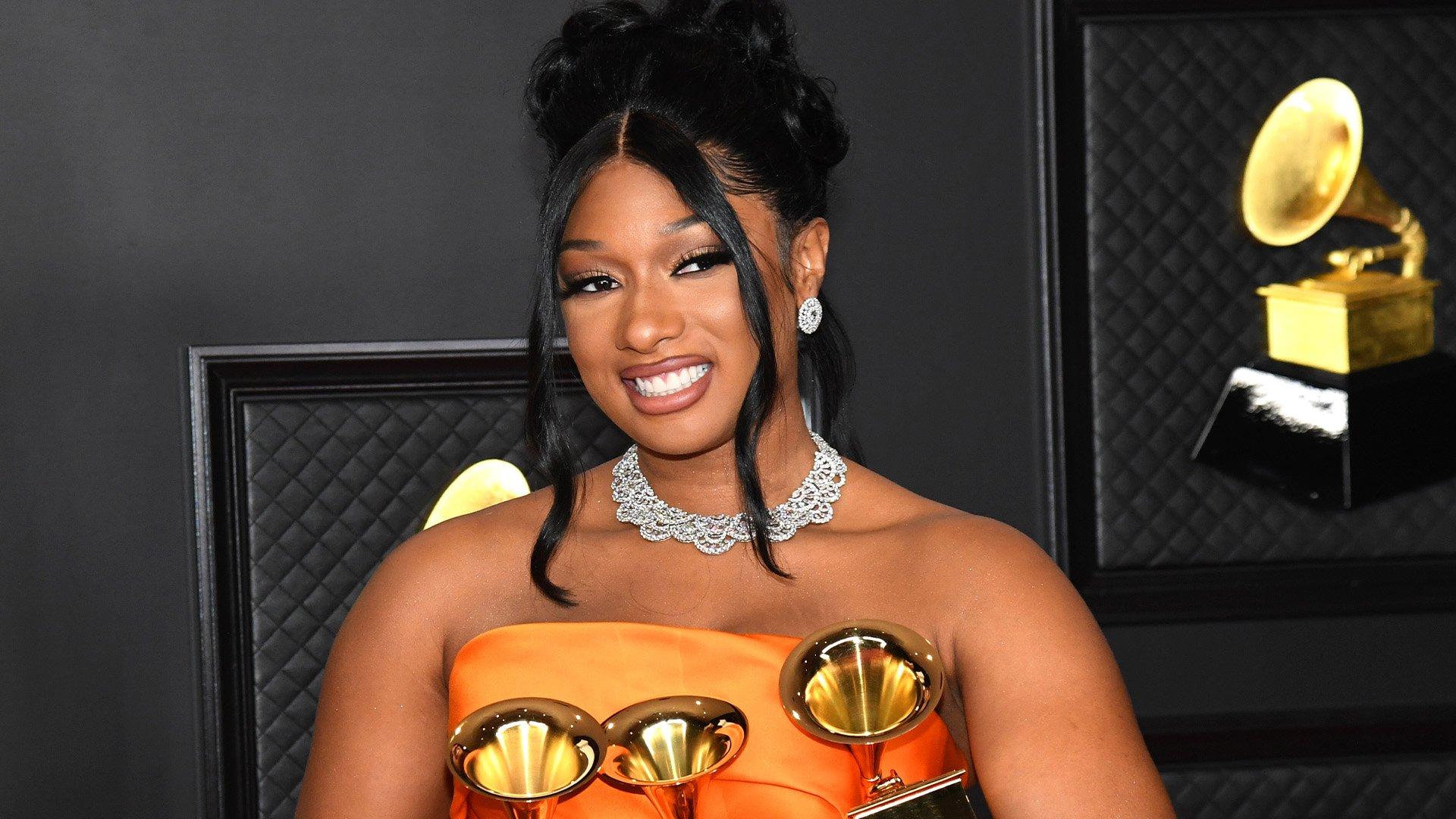
Photo: Kevin Mazur/Getty Images for The Recording Academy
video
GRAMMY Rewind: Megan Thee Stallion Went From "Savage" To Speechless After Winning Best New Artist In 2021
Relive the moment Megan Thee Stallion won the coveted Best New Artist honor at the 2021 GRAMMYs, where she took home three golden gramophones thanks in part to her chart-topping smash "Savage."
In 2020, Megan Thee Stallion solidified herself as one of rap's most promising new stars, thanks to her hit single "Savage." Not only was it her first No. 1 song on the Billboard Hot 100, but the "sassy, moody, nasty" single also helped Megan win three GRAMMYs in 2021.
In this episode of GRAMMY Rewind, revisit the sentimental moment the Houston "Hottie" accepted one of those golden gramophones, for Best New Artist.
"I don't want to cry," Megan Thee Stallion said after a speechless moment at the microphone. Before starting her praises, she gave a round of applause to her fellow nominees in the category, who she called "amazing."
Along with thanking God, she also acknowledged her manager, T. Farris, for "always being with me, being by my side"; her record label, 300 Entertainment, for "always believing in me, sticking by through my craziness"; and her mother, who "always believed I could do it."
Megan Thee Stallion's "Savage" remix with Beyoncé also helped her win Best Rap Song and Best Rap Performance that night — marking the first wins in the category by a female lead rapper.
Press play on the video above to watch Megan Thee Stallion's complete acceptance speech for Best New Artist at the 2021 GRAMMY Awards, and remember to check back to GRAMMY.com for more new episodes of GRAMMY Rewind.
Black Sounds Beautiful: How Megan Thee Stallion Turned Viral Fame Into A GRAMMY-Winning Rap Career
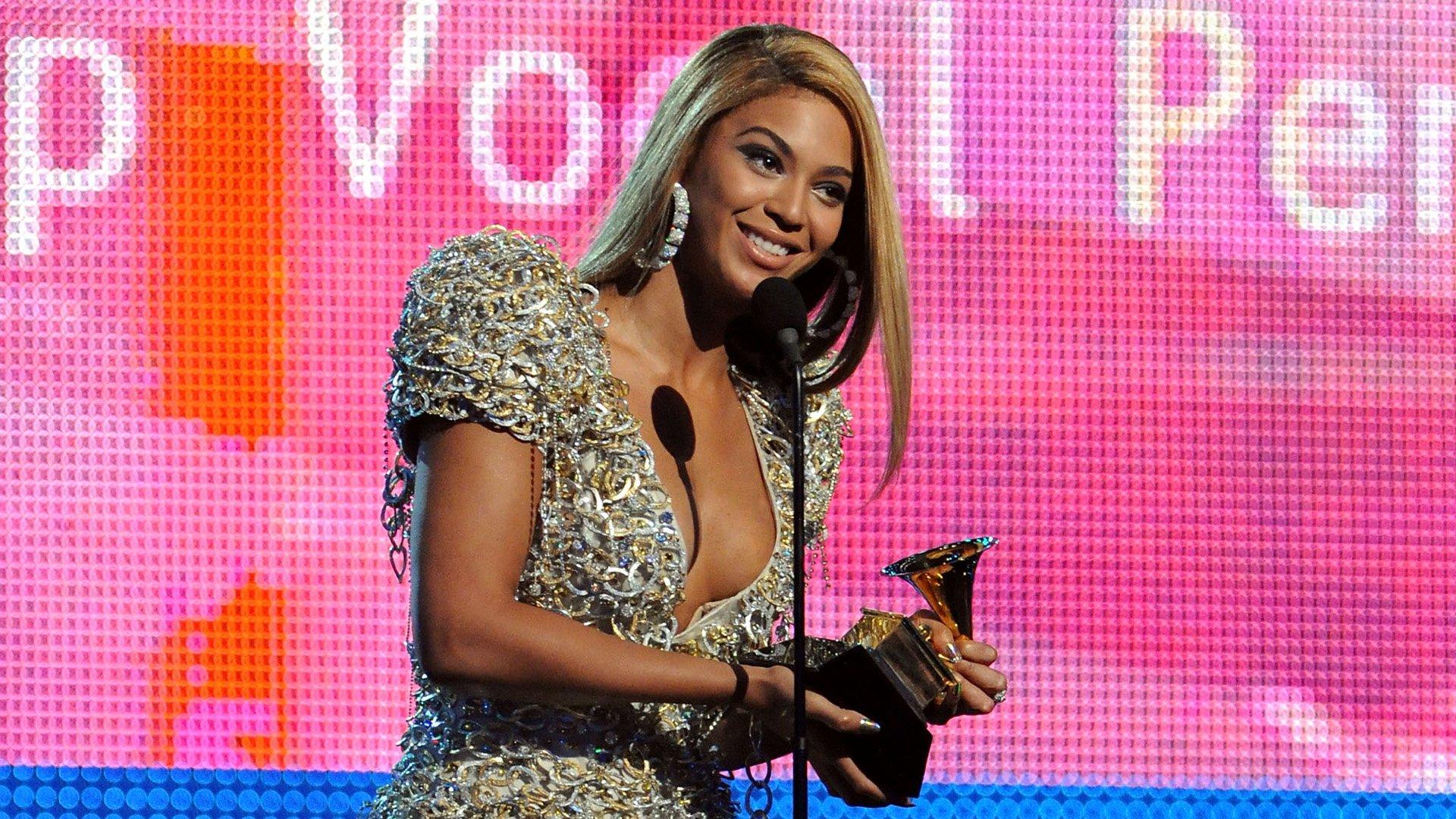
Photo: Jeff Kravitz/FilmMagic
video
GRAMMY Rewind: Watch Beyoncé Win A GRAMMY For "Halo" During Her Record-Setting Night In 2010
As you dive into Beyoncé's new album, 'COWBOY CARTER,' revisit the moment Queen Bey won a GRAMMY for "Halo," one of six golden gramophones she won in 2010.
Amongst Beyoncé's expansive catalog, "Halo" is easily one of her most iconic songs. Today, the 2009 single is her most-streamed song on Spotify; it was her first video to reach one billion views on YouTube; and it helped her set one of her GRAMMY records in 2010.
In this episode of GRAMMY Rewind, watch the superstar take the stage to accept Best Female Pop Vocal Performance for "Halo" in 2010 — the year she became the first female artist to win six GRAMMYs in one night.
"This has been such an amazing night for me, and I'd love to thank the GRAMMYs," she said, admitting she was nervous before taking a deep breath.
Before leaving the stage, Beyoncé took a second to thank two more special groups: "I'd love to thank my family for all of their support, including my husband. I love you. And I'd like to thank all of my fans for their support over the years."
The five other awards Beyoncé took home that night were for the coveted Song Of The Year ("Single Ladies (Put A Ring On It)") and four R&B Categories: Best Contemporary R&B Album (I Am... Sasha Fierce), Best R&B Song ("Single Ladies"), Best Female R&B Vocal Performance ("Single Ladies"), and Best Traditional R&B Vocal Performance (for her cover of Etta James' "At Last").
As of 2024, Beyoncé has won the most GRAMMY Awards in history with 32 wins.
Press play on the video above to relive Queen Bey's "Halo" win for Best Female Pop Vocal Performance, and check back to GRAMMY.com for more new episodes of GRAMMY Rewind.
Enter The World Of Beyoncé
Beyond Country: All The Genres Beyoncé Explores On 'Cowboy Carter'
Beyoncé Is The Genre-Bending Queen On 'Cowboy Carter': 5 Takeaways From Her New Album
Beyoncé's New Album 'Cowboy Carter' Is Here: Check Out The Featured Artists, Cover Songs, And Tracklist
Everything We Know About Beyoncé's New Album, 'Cowboy Carter': Two New Singles, Tracklist, A Shift To Country & More
How Beyoncé Is Honoring Black Music History With 'Cowboy Carter,' "Texas Hold Em," 'Renaissance' & More
Songbook: The Complete Guide To The Albums, Visuals & Performances That Made Beyoncé A Cultural Force
A Timeline Of Beyoncé's GRAMMY Moments, From Her First Win With Destiny's Child to Making History With 'Renaissance'
How Many GRAMMYs Has Beyoncé Won? 10 Questions About The 'Renaissance' Singer Answered

Watch Beyoncé Make GRAMMY History With Her 32nd Win In 2023 | GRAMMY Rewind
6 Takeaways From 'Renaissance: A Film By Beyoncé'
Beyoncé's 'Dangerously In Love' Turns 20: How The Solo Debut Foreshadowed The Singer's Icon Status
5 Takeaways From Beyoncé's New Album 'Renaissance'

How Beyoncé Has Empowered The Black Community Across Her Music And Art | Black Sounds Beautiful

The Creative Rebirth Of Beyoncé On '4' | For The Record
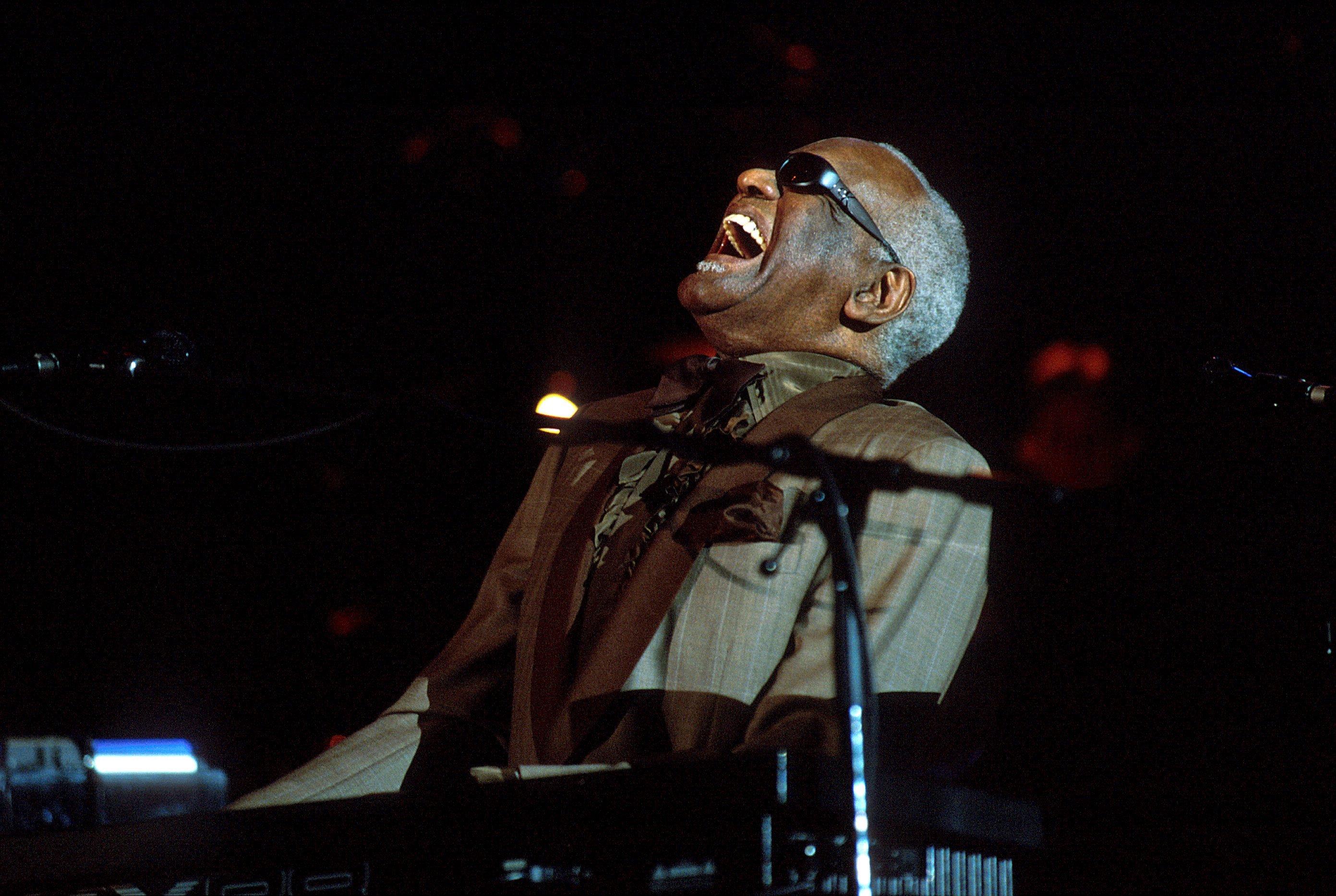
news
8 Country Crossover Artists You Should Know: Ray Charles, The Beastie Boys, Cyndi Lauper & More
Beyoncé's 'Cowboy Carter' is part of a proud lineage of artists, from Ringo Starr to Tina Turner, who have bravely taken a left turn into country's homespun, heart-on-sleeve aesthetic.
When Beyoncé announced her upcoming album, Cowboy Carter, with the drop of two distinctly country tracks, she broke both genre and barriers. Not only did Queen Bey continue to prove she can do just about anything, but she joined a long tradition of country music crossover albums.
Country music is, like all genres, a construct, designed by marketing companies around the advent of widely-disseminated recorded music, to sell albums. But in the roughly 100 intervening years, genre has dictated much about the who and how of music making.
In the racially segregated America of the 1920s, music was no exception. Marketing companies began to distinguish between "race records" (blues, R&B, and gospel) intended for Black audiences and hillbilly music (country and Western), sold to white listeners. The decision still echoes through music genre stereotypes today.
But Black people have always been a part of country music, a message that's gained recognition in recent years — in part because of advocacy work by those like Rhiannon Giddens, who plays banjo and viola on "Texas Hold 'Em," one of two singles Beyoncé released in advance of Cowboy Carter.
And since rigid genre rules' inception, many artists from Lil Nas X to Bruce Springsteen have periodically dabbled in or even crossed over to country music.
In honor of Beyoncé's foray, here are eight times musicians from other genres tried out country music.
Ray Charles — Modern Sounds in Country and Western Music (1962)
In 1962, the soul music pioneer crossed the genre divide to cut a swingin' two-volume, 14-track revue of country and western music.
Part history lesson and part demonstration of Charles' unparalleled musicianship, Modern Sounds in Country and Western Music covers country songs by major country artists of the era, including Hank Williams, Don Gibson, and Eddy Arnold. An instant success, the record topped album sales charts and was Charles' first atop the Billboard Hot 200 charts.
Ringo Starr — Beaucoups of Blues (1970)
The Beatles' drummer loves country music. Ringo Starr cut this album, which sounds like something you'd two-step the night away to at a honky tonk, as his second solo project. He was inspired by pedal steel guitar player and producer Pete Drake, who worked on George Harrison's All Things Must Pass.
With Drake's help, Starr draws out a classic honky tonk sound — pedal steel, country fiddle, and bar room piano — to round out the album.
Beaucoups includes a textbook country heartbreak song, "Fastest Growing Heartache in the West," a bluesy ramblin' man ballad, "$15 Draw," and a surprisingly sweet love song to a sex worker, "Woman Of The Night."
The Pointer Sisters — Fairytale (1974)
Remembered for their R&B hits like "I'm So Excited" and "Jump (For My Love)", the Pointer Sisters dropped "Fairytale," a classic country heartbreak song into the middle of their second studio album, That's A Plenty.
Full of honky tonk pedal steel and fiddle, the track earned the band a GRAMMY award for Country and Western Vocal Performance Group or Duo in 1975, beating out Willie Nelson, Kris Kristofferson, Bobby Bare, and the Statler Brothers; they were the first, and to date, only Black women to receive the award.
The same year the song came out, the Pointer Sisters also became the first Black group to play the Grand Ole Opry, arriving to find a group of protesters holding signs with messages like 'Keep country, country!'
Tina Turner — Tina Turns the Country On! (1974)
Also in 1974, Tina Turner cut her first solo album, Tina Turns the Country On!, while she was still performing with then-husband Ike Turner as the Ike & Tina Turner Revue.
Containing the seeds of the powerful, riveting voice she'd fully let loose in her long solo career after separating from her abusive husband, the album presents a stripped down, mellow Turner.
She covers songs like Kris Kristofferson's "Help Me Make It Through The Night" and Bob Dylan's "Tonight I'll Be Staying Here With You," and delivers a soaring rendition of Dolly Parton's "There Will Always Be Music."
Turner was nominated for a GRAMMY award for the album, but in Best R&B Vocal Performance, Female, category.
The Beastie Boys — Country Mike's Greatest Hits (1999)
This Beastie Boys cut only a few hundred copies (most reports say 300) of this spoof country album — reputedly conceived of as a Christmas present for friends and family, and never officially released.
Presenting the supposed greatest hits of a slightly dodgy, enigmatic character – Country Mike, who shares a name with band member "Mike D" Diamond — the album sounds like vintage steel guitar country. Think Hank Williams and Jimmy Rodgers with a dash of musical oddballs Louden Wainwright III and David Allen Coe's humor and funk.
Country Mike appears just briefly in the liner notes of the band's anthology album, The Sounds of Silence, (which also includes two of the album's tracks: "Railroad Blues" and "Country Mike's Theme"), as part of an alternate universe wherein Mike temporarily lost his memory when he was hit on the head.
"The psychologists told us that if we didn't play along with Mike's fantasy, he could be in grave danger," the notes read. "This song ('Railroad Blues') is one of the many that we made during that tragic period of time."
Cyndi Lauper — Detour (2016)
The "Girls Just Want To Have Fun" singer enjoyed herself thoroughly by deviating from her typical style with 2016's Detour.
Road tripping into country music land, Lauper covered country songs of the 1950s and 1960s, including Marty Robbins' "Begging You," Patsy Montana's "I Want to be a Cowboy's Sweetheart" and Dolly Parton's "Hard Candy Christmas" with guest appearances by Willie Nelson, Alison Krauss, Emmylou Harris, and Vince Gill.
Jaret Ray Reddick — Just Woke Up (2022)
It might be hard to imagine the Bowling for Soup frontman, known for teenage pop-punk angst hits like "Girl all the Bad Guys Want" and "Punk Rock 101" crooning country ballads.
But in 2022, under the name Jaret Ray Reddick, he cut his solo debut, Just Woke Up. Drawing inspiration from Reddick's native Texas, the steel guitar and twang driven album features duets with Uncle Cracker, Cody Canada, Frank Turner, and Stephen Egerton.
Self-effacing and personable as ever, Reddick heads off questions about the viability of his country music with the album's first track, "Way More Country," acknowledging the questions listeners might have:
"I sing in a punk rock band/ And I know every word to that Eminem song "Stan"/ And I've got about a hundred and ten tattoos / But I'm way more country than you."
Bing Crosby — "Pistol Packin' Mama" (Single, 1943)
Legendary crooner of classic Christmas Carols and American standards, Bing Crosby decided to try his hand at country music with his cover of Al Dexter's "Pistol Packin' Mama," the first country song to appear on Billboard's charts.
The song, which tells the story of a man begging his woman not to shoot him when she discovers him out on the town fooling around, has since also been covered by Willie Nelson, Hoyt Axton, and John Prine.
How Beyoncé Is Honoring Black Music History With "Texas Hold Em," 'Renaissance' & More
